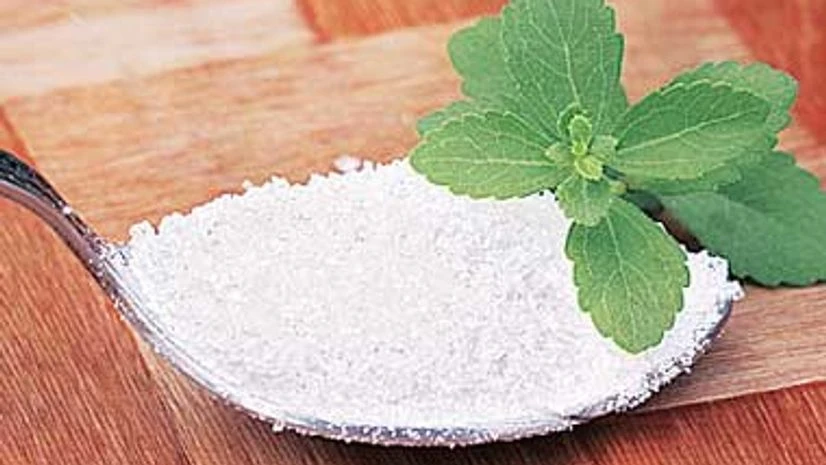To add or not - the world of sweeteners has always been a confusing one, with studies backing both sides of the debate. As the gigabytes of research on sweeteners grows, our old friend sugar is increasingly taking on a villainous role. The most recent attack on table sugar came at the recent G20 summit in Turkey, where global leaders were urged by the International Diabetes Federation to discourage sugar consumption by imposing a tax. Paul van der Velpen, head of Amsterdam's health service, said two years ago that sugar products should carry a health warning because sugar is addictive and "the most dangerous drug of our time".
Stevia, a natural sweetener obtained from a plant called Stevia rebaudiana, is the latest to join the brigade of alternative sweeteners, such as aspartame, acesulfame K, sucralose and saccharin. Four years after the proposal was made, stevia was cleared recently by the Food Safety and Standards Authority of India.
Stevia is more than 200 times as sweet as sugar, and the sweetener's appeal lies in the fact that it isn't artificial, says Sunita Choudhary, chief dietitian and nutritionist at Delhi-based BLK Super Speciality Hospital. "I prefer a natural product over a chemical one - you never know what reactions may take place in the body if you add artificial sweetener to all the chemicals that are already there," she says.
More From This Section
To an extent, stevia owes its popularity to something it doesn't do - it doesn't add calories. From a marketing point of view, says Harshvardhan Chaukulkar of Pune's Ruby Hall Clinic, the "zero calorie" label is a definite plus in India. "It has a negligible effect on blood glucose, and that's what makes stevia so attractive to people who are on carbohydrate-control diets, such as people with diabetes," he says.
Stevia is also reported to have additional health benefits. Two long-term studies by the Natural Standard Research Collaboration, which reviews evidence on herbs and supplements, indicate that stevia may be effective in lowering blood pressure in hypertensive patients, although data from short-term studies do not support these findings. Natural Standard then gave stevia a "grade B for efficacy" in lowering blood pressure.
According to Chaukulkar, caution should always be advised when it comes to stevia's intake. "Many products that had been labelled safe were later taken off the market. What we need is a comparative study on stevia, aspartame, sucralose and other additives done over a long period of time. Most of the existing studies have been done abroad and we need research that's done here and then applied to our population," he adds.
For someone who weighs 60 kg, the acceptable level of stevia intake is less than 240 mg per kg, says Chaukulkar. "Adding this to carbonated drinks is dicey because if someone has two-three bottles, your intake of stevia just goes up," he adds. Both Agarwal and Choudhary echo his thoughts, advocating controlled intakes of products with stevia.
If stevia is marketed as an affordable alternative, it'll definitely be a good choice for the market, compared to products that contain aspartame (Splenda, Equal, Spoonful and NutraSweet), believes Chaukulkar.
"If stevia offers a good margin to distributors, it'll definitely grow very quickly," Agarwal says. "Stevia is more expensive, but people pay because it's natural and isn't known to have side-effects. My patients had to source stevia from outlets that stocked imported products; now that it's approved, stevia should be available more commonly," says Choudhary. The only drawback, however, is the slightly bitter aftertaste she found while using stevia.
"My clients who've been getting stevia from Gaia [a grower and manufacturer of organic products] have never had any complaint," says Agarwal, adding that the delay in stevia's approval in India could be because of the sucralose and aspartame lobby. "Even in cases where my clients want desserts, I ask them to use stevia, because an artificial sweetener will not satisfy the brain's craving at all."

)
